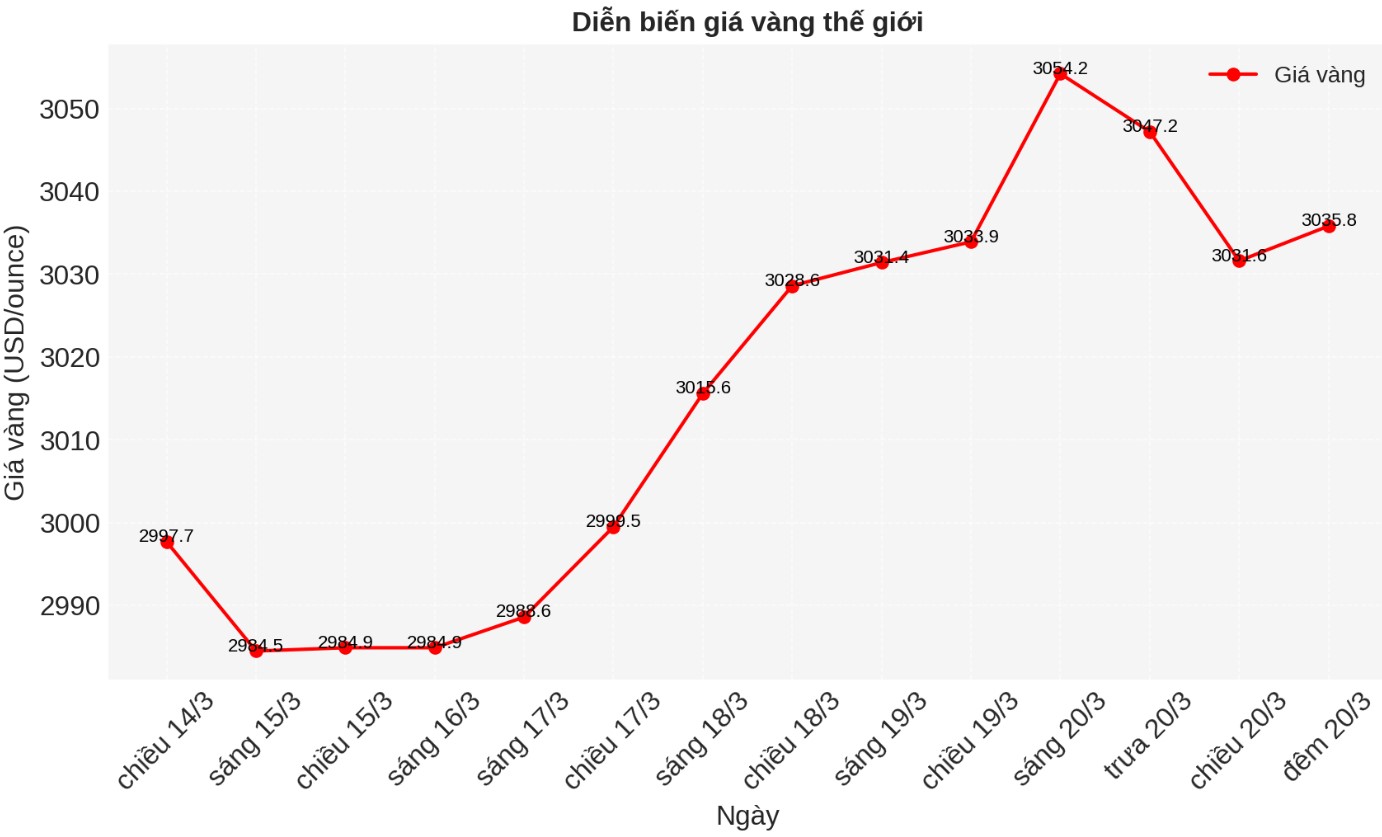Philadelphia FED survey exceeds expectations
The US economy continued to give mixed signals when the FED Philadelphia manufacturing survey showed solid manufacturing activity in March.
The regional central bank said on Thursday that its manufacturing business outlook index rose to 12.5, up from 18.1 in February. Although activity has decreased, this result is better than expected, as economists have predicted the index will decrease to 8.8.
Moducational activities in the region have generally expanded, but have spread less, according to businesses participating in the March Manufacturing Business Prospects survey, the report said.
The better results came right after the New York Federal Reserve reported a sharp decline in manufacturing activity. The regional central bank said its Empire State Manufacturing Survey index fell to -20.0, down sharply from 5.7 in February.

The latest economic data did not have much impact on gold prices, the market only recorded some slight profit-taking activities after gold prices set a new record of over $3,050/ounce overnight. Spot gold prices recently fluctuated at $3,039.5 an ounce, down 0.26% on the day.
Considering the components in the report, the new order index fell to 8.7, down from 21.9 previously. At the same time, the Transport index decreased to 2.0, down from 26.3. However, the US labor market remains strong. The number of employees increased to 19.7, from 5.3 in February.
The Bank of England (BoE) has not changed interest rates

As expected, the BoE kept the key interest rate (Bank Rate) at 4%. However, the 8-1 vote on keeping interest rates unchanged was a bit "happy" compared to the forecast. Experts have predicted the vote will be 7-2.
The BoE's neutral view comes as the bank continues to focus on inflation, despite the economy facing uncertainty affecting growth expectations.
"While the UK's GDP growth forecast was slightly stronger than in February, the business survey indices continued to show weak growth, especially in recruitment plans. Economic activity in the past few quarters has been largely due to both demand and supply factors," the BoE said in its monetary policy announcement.
"CPI inflation in the first 12 months increased to 3.0% in January, from 2.5% in December, slightly higher than the forecast in February. Domestic price and wage pressure is easing but remains high. Although global energy prices have recently fallen, they are still higher than last year, and CPI inflation is expected to continue to increase to around 3.75% in the third quarter of 2025.
Although inflation is expected to decrease afterwards, the Executive Board will continue to closely monitor signs of prolonged inflationary pressures," the announcement added.
The gold market is currently trading near a session low for the British pound but there is no new sell-off after the BoE's monetary policy decision. Spot gold was recently trading at £2,337.40 an ounce, down 0.35% on the day.
The decrease in the bang reflects profit-taking activities in the general market. Spot gold is currently trading at $3,034.90 per ounce, down 0.41% on the day.
The BoE also emphasized a balanced stance on cautious and gradual interest rate cuts as inflationary pressures ease.
"The Committee will continue to closely monitor the risks of prolonged inflation and what evidence may reveal about the balance between supply and demand in the economy. Monetary policy needs to continue to remain at a limit for long enough until inflation risks of returning to the 2% target sustainably in the medium term have been further eliminated," the monetary policy announcement said.
Justin Low, currency analyst at Forexlive.com, said that although the BoE did not make a major change in its statement, the language and voting were somewhat tailor-faced.











